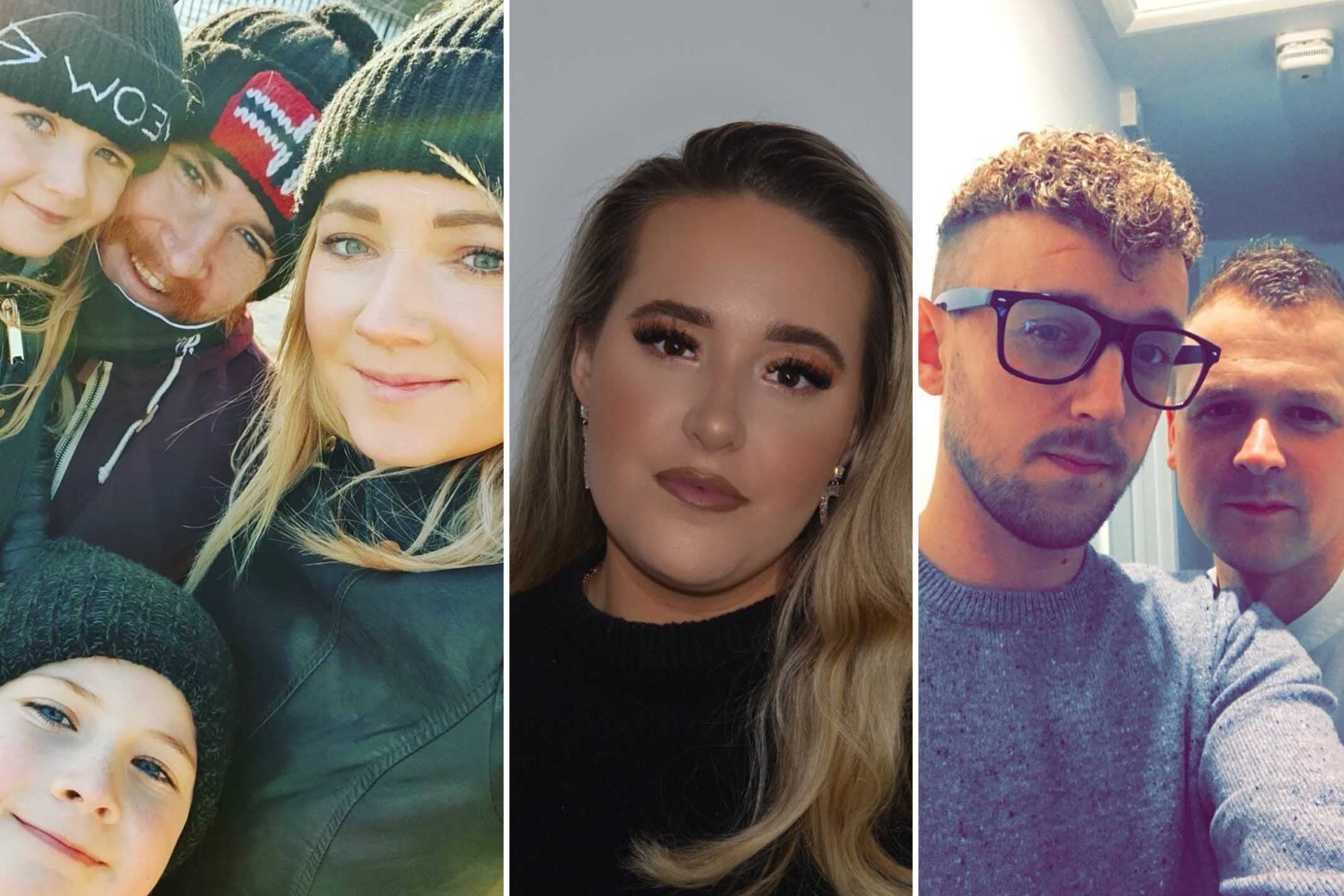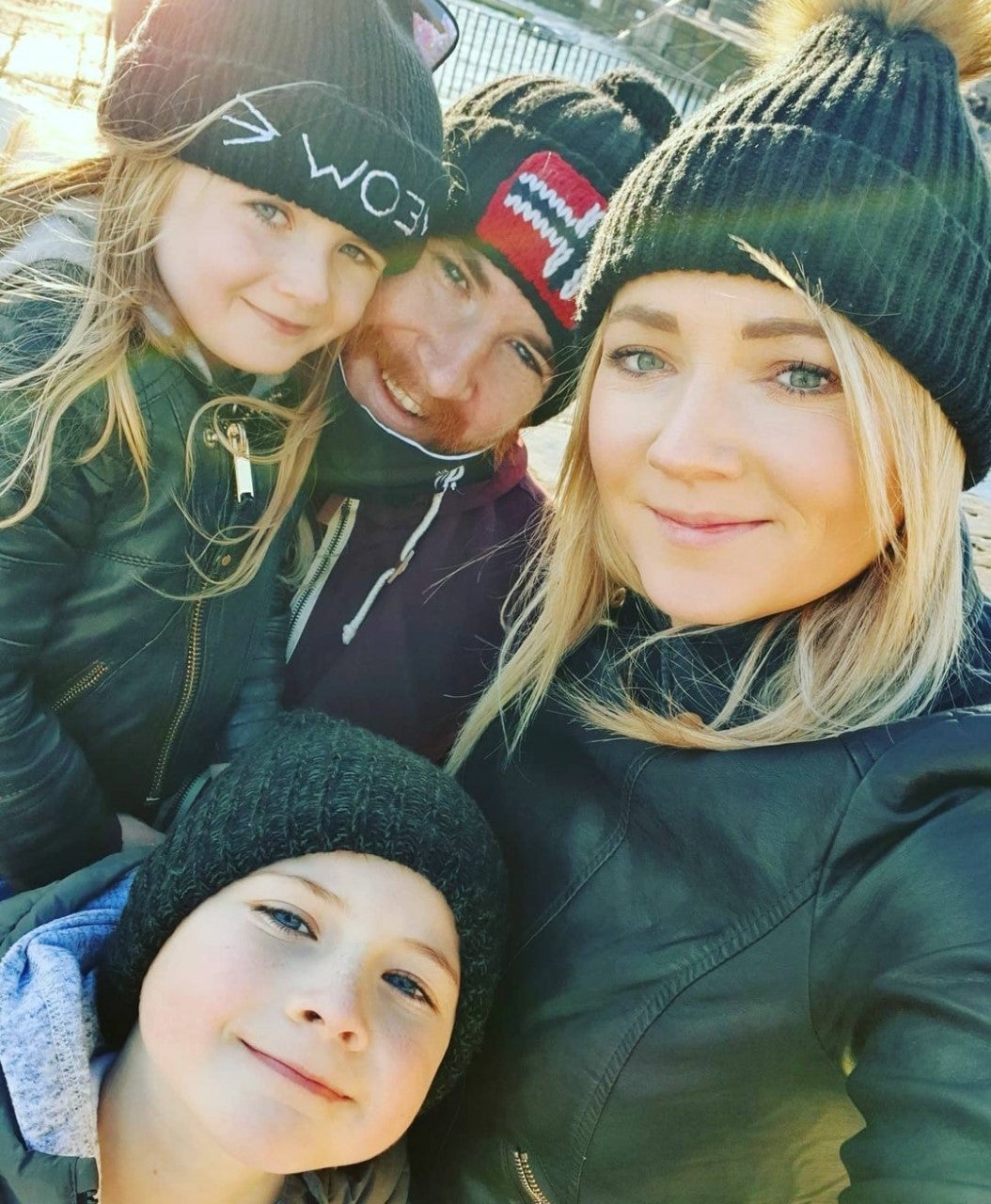Meet the Millennial and Gen Z foster carers
Fostering charity Tact says it has seen a three-fold increase in millennials applying to be foster carers in 2020. Joanna Whitehead talks to some of them


In the UK alone, over 65,000 children are living in foster care – with families that offer them a safe and caring home environment while they are unable to live with their own parents. During lockdown, job losses, deepening poverty and worsening mental health have all compounded to lead to an increase in children needing such help. In January this year, children’s charity Barnados revealed that the number of children urgently needing foster care had risen by more than half during the pandemic.
Kevin Williams, chief executive of The Fostering Network, the UK’s leading fostering charity, tells The Independent: “Every 20 minutes a child comes into care in need of a foster carer. Foster carers play a vital role in society and they change children’s lives. Throughout the pandemic they have achieved incredible things, and despite additional practical and emotional challenges, they have made sure that the children living with them can thrive.”
Placements are usually geographically close by their home and can last anywhere between two days to two decades. Whilst under foster care, professionals work with a child’s family to try and resolve any issues impacting their ability to keep their child safe and cared for.
But while the stereotype of a foster carer tends to be of an older person who already has adult children, a wave of new fosterers in their twenties and thirties are choosing to foster children, either in addition to or instead of their own biological children.
“Legally, people over the age of 18 can become foster carers, and while the assessment process is understandably rigorous, people can consider fostering as long as they are in stable accommodation with a spare room, and enough financial security,“ says Williams.
Tact, the UK’s largest fostering charity, tells The Independent that they have seen a three-fold increase in millennials applying to become foster carers in 2020.
The Independent spoke to some of them about their experiences of fostering.
Bryleigh Flack (23) was approved to become a foster carer in October 2020. She lives in South London with her partner, Grace.
“Our placement is a teenager and she’s never been able to be a child, ever. Now, it’s about letting them know they’re safe and they’re allowed to be a child”

“A lot of people don’t understand why someone so young would want to foster. Even when I spoke to friends, they were like, ‘Are you sure?!’. But my mum was a foster carer, so I grew up around it.
I was always aware that there were many children who needed help, that some kids didn’t have enough food or a family. I knew that as soon as I was able to, I’d start fostering.
It can be quite daunting – you never know who’s going to be placed with you next or when things are going to come up. But that also makes it exciting. You can just get a call one day and someone will say, ‘we’re going to be placing so-and-so with you,’ and they instantly become a member of your family.
We got our first placement in March this year and, so far, we’ve loved every minute. It is the most rewarding thing you can do, giving a child a second chance at being a child. Our placement is a teenager and she’s never been able to be a child. Statistically, older children are harder to place because the brutal reality is that most people don’t want to deal with the stresses that come with a teenager. But now, it’s about letting her know she’s safe and allowed to be a child.
Grace and I plan to adopt at some point, but we plan to foster for as long as we can first. For me, the priority isn’t having my own children but trying to help children that need a home now.
It’s the small things that are the most emotional
Kids in foster care also have to go through things like therapy and meeting their families at a contact centre [arranged regular time where foster children meet their original families]. It can be overwhelming for them to have to deal with so many different scenarios at such a young age. My job is to let them know they can take things at their own pace.
It’s the small things that are the most emotional. You can quite often get kids who don’t like any sort of physical contact because they have either been sexually assaulted in their childhood or they have such severe detachment issues that they don’t respond well to hugs and things like that. And then a couple of months after being with you, they’ll come over and ask for a hug. Being able to slowly undo those toxic behavioural patterns in children – especially older children – is really remarkable. I love and I cherish those little moments.
Of course, foster care comes with the inevitability of goodbye. Over time I have become such a resilient person, but the goodbyes are the worst. As a foster carer, you’re supposed to be a professional who can deal with these things and not get too attached. But you put your whole heart and soul into every child that comes into your house. I remember from my mum that saying goodbye can be heart breaking.”
Jenny (32) and Jonny (33) McCurrie were approved to become foster carers in January 2020. The couple live in Belfast with their two biological children, aged eight and five.
“There’s no such thing as ‘too attached’ – you need that. The children need you to have that much of an investment to feel the value in the care”

“I grew up in foster care and was always aware of the need for it. From early on, I had planned that I would go down the fostering route when I was ready.
Since being approved, we’ve had two placements. We took a young boy from Kenya for a five-week placement and it was brilliant. He loved life. He had his challenges, but I think when you have the passion and you’re interested to find a solution, you work through it and we got really positive outcomes from it.
When the time came for him to return to his birth family, it broke our hearts. It was a big learning curve and a challenge because we were thinking, ‘Oh, can we do this [take him on permanently], are we too attached?’ – and then I thought, ‘there’s no such thing as “too attached”’ – you need that. The children need you to have that much of an investment to feel the value in the care.
An extra person in the home only adds to your family
None of the training you do prepares you for the child not wanting to leave your care. It’s more the opposite – the preparation for unification and them missing their parents and siblings –so that was a very hard thing I had to build the resilience up for.
An extra person in the home only adds to your family. I always remember when we were having our [biological] children and thinking ‘how could you possibly love anyone else – how do you share that love?’, and someone said to me, ‘you don’t share it – your heart grows’, and I think the best thing about fostering is opening your home to another person and having more love there for someone else. And seeing their wee smile and knowing you’re making that difference and helping them to feel loved and cared for.
If you’re motivated and passionate about fostering, it’s absolutely worth it. It’s definitely busy – you have social worker visits, supervisions, training, you have to assist with family time – but if you’re accept that that’s part of it, then it’s definitely worth trying.”
Ian (36) and Michael (32) Houghton live together in Coventry. They were approved to become foster carers in March 2020.
“You won’t look back”

“My parents were foster carers when I was younger, so I grew up with foster brothers and sisters and I’ve always had an interest in following in their footsteps.
My partner and I had spoken about having children and we decided that we’d actually like to give something back and help people. We thought long and hard about whether it was the right thing to do.
After being approved, we took children in throughout the whole pandemic – we’ve had 26 emergency placements in total. We provide emergency foster placements from Friday to Monday and also offer day-care during the week. There are all sorts of circumstances that lead children to come to us.
We’ve had some children who have been quite reluctant to stay with a same-sex couple, but they always settle in and we’ve never had any problems.
It’s literally the best decision you will make and so rewarding
Adapting to children’s different backgrounds can sometimes be hard. One weekend, you could have a five-year-old that just needs a respite weekend, or a 16-year-old who’s on a police protection order, so we have to cater to many different needs. We’ve had children who’ve got autism; you can imagine – they’ve got their set routines and when they’re pulled away from that, you have to start from scratch with them and build their confidence up to try and create a routine they feel comfortable with.
Despite the difficulties, fostering is literally the best decision you will make and it’s so rewarding. Everything outweighs itself just from that reward you get from making a difference. You’ll get children who will be quite reluctant right at the start, but say within 12 hours, they start to bond with you, and you form that relationship, and they know that it’s a safe place and you’re helping them out. As soon as you see that smile on their face or they drop their guard and they become quite close to you, that’s the reward for us, because we know we’re doing something right.”
Join our commenting forum
Join thought-provoking conversations, follow other Independent readers and see their replies
Comments
Bookmark popover
Removed from bookmarks